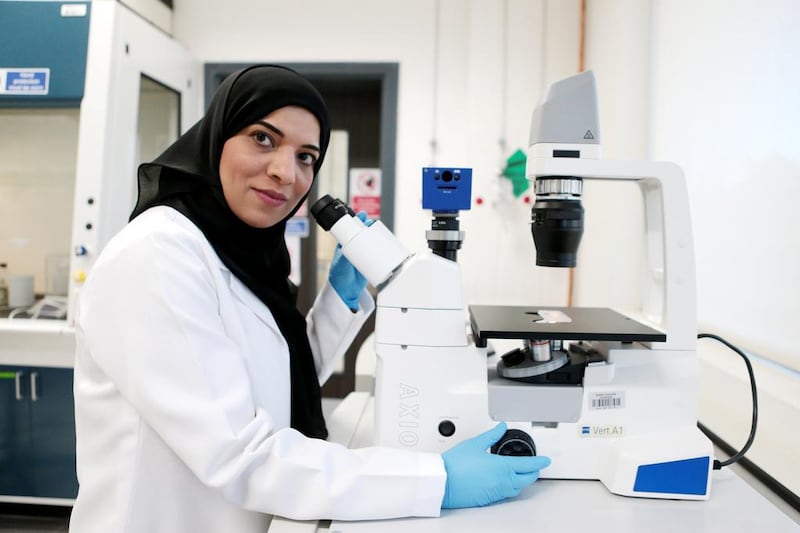ABU DHABI // Leading Emirati researcher Dr Habiba Al Safar has been honoured for her work in identifying a gene associated with the prevalence of Type 2 diabetes in the Emirati population.
The For Women In Science award pays tribute to exceptional scientists every year. Dr Al Safar was one of four GCC winners this year.
Her research is the first genome-wide association study of the UAE Bedouin population, and the first of its kind in the Middle East.
Dr Al Safar is an assistant professor at the department of biomedical engineering at Khalifa University.
“These awards are like a boost for us to achieve more,” she said. “They give me the strength to go on.
“Research has its ups and downs. Sometimes you get results and other times you don’t. These awards help ensure that I never give up. I love my work, my students and my university.”
Two women in Saudi Arabia also received awards.
Nouf Al Shareef won hers for research into genes identified as possible contributors to salinity tolerance, and Jasmeen Merzaban for immunology research focusing on stem cells and cell migration.
Najat Al Odaini, from Yemen, was awarded for environmental research on the high fluoride concentration of her country’s groundwater.
Dr Al Safar grew up and attended high school in Dubai. She pursued her undergraduate studies in biochemistry in the US, then took her master’s in medical engineering in the UK.
After completing her studies, she worked with the forensics laboratory at Abu Dhabi Police and, after a couple of years, followed by her PhD in Australia.
“My passion for research started while I was doing my PhD. I wanted to work on a project that would help the UAE and I found that Type 2 diabetes had a high prevalence,” she said.
Dr Al Safar moved to Khalifa University in 2011. There she decided to set up the first registry for diabetes in the UAE.
She identified families with susceptibility to diabetes and started a programme to help them. One family had more than 60 members over six generations who suffered from diabetes.
The family management programme she started involved university students taking care of a member of their own families who suffered from diabetes, going to hospital with them and trying to help them in whatever way they can.
“It’s a very successful programme and we have noticed that students started taking steps to improve their lifestyle and change bad habits that their parents practise. The doctors say there are very significant results,” Dr Al Safar said.
“If we identify the gene linked to diabetes, then we can delay or prevent the disease. I also have that gene and knowing that made me change my diet, go to the gym and avoid stress. Even if someone has the gene, the disease can be delayed or prevented.
“In the UAE we have all the facilities but the one weakness is that the policies, ethics committees, et cetera, need to be united. It’s a lengthy process. Sometimes it takes a year to get ethics approval.
“For example, if you get funding for a year and it takes eight months to get approval, then you don’t have time to do much research. The process of applications is lengthy.”
On the award she won, which is organised by Unesco and L’Oreal, Dr Al Safar said: “It is not difficult at all to be a woman scientist in the UAE. Women here are succeeding as doctors, pilots or in the Government.
“This is because of the Government’s support that women can accomplish so many things and overcome the obstacles.
“A woman can be a mother, a wife, a sister and achieve many things. The scientific community is supportive. They give scholarships and send students abroad for studies.”
arizvi2@thenational.ae







